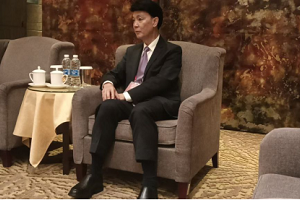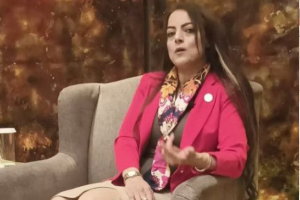
BY EYOB BELACHEW
Since November 2020, an armed conflict between federal allied forces and TPLF armed forces has devastated Ethiopia’s northern region, specifically the Tigray, Amhara, and Afar regions. International actors, including the US, EU, and UK special envoys, as well as the African Union and its special envoy, Obasanjo, have not yet delivered the desired effects.
The Ethiopian government has declared a unilateral humanitarian ceasefire and an indefinite truce, which the rebel groups have dubbed “a sick joke.” While significant confidence-building measures are being put in place, as the African Union Commission chairperson said in a statement last year, the Abiy government has long continued to insist that it will only negotiate under the auspices of the African Union and accept a single process.
Tigray’s rebel leaders, on the other hand, have been sharply critical of the AU-led peace efforts and have vehemently opposed the role of the AU’s Horn of Africa High Representative, Olusegun Obasanjo, protesting his “proximity” to the federal government in Addis Ababa.
Just two days before the TPLF launched its third round of attack against the Ethiopian government on August 24, 2022, Getachew Reda, a spokesperson for the Tigray People Liberation Front (TPLF), published a piece on African Report titled “The African Union cannot deliver peace to Tigray.” Getachew claimed, among other things, that the AU, under the leadership of Moussa Faki Mahamat, had provided tacit approval to the regime’s genocidal assault on Tigray.
In much less than three weeks, the Tigray rebels say they are ready to take part in African Union (AU)-led peace negotiations without preconditions. “The government of Tigray is prepared to participate in a robust peace process under the auspices of the African Union,” said a statement by the rebels. “We are ready to abide by an immediate and mutually agreed cessation of hostilities in order to create a conducive atmosphere.” The international community praised the rebels’ actions. Although the acknowledgement is good, the peace-building steps taken by the government of Ethiopia seem to get less attention. It was the Ethiopian government that called for a cessation of hostilities and insisted that any peace process be mediated by the AU and its special envoy.
Be that as it may, it is remarkable that the TPLF is able to make a dramatic shift from outright rejection to confidence in the African Union’s leading role in this peace process. Analyzing the underlying motives behind this turnaround may shed some insight into the future of the AU-led peace process and the TPLF’s level of commitment to adhering to the process without engaging in parallel efforts.
In what appears to be yet another abrupt shift or a blatant denial of its former stance, the spokesperson of the TPLF, Getachew Reda, told Aljazeera Inside Story on September 14 that “we have never rejected the role of the African Union.” Considering the TPLF’s constant shifting of goals, can anyone count on the group’s current stance or what its spokesperson says for that matter? Ethiopians are drawing parallels between Getachew’s behavior and that of former Iraqi Defense Minister Ali Hassan al-Majid, nicknamed “Chemical Ali,” who broadcast Saddam Hussein’s victory until the last second as Bagdad burned around him.
If TPLF leaders are serious about joining the AU-led peace talks, they must first apologize for their careless remark about the union’s “tacit approval” of the federal government’s participation in the groups’ fictitious “Tigray genocide.” This doesn’t necessarily characterize the group’s complete change of mind or commitment; although it might actually help us understand the extent of trust the group places in the unions’ impartial endeavors.
Although the TPLF accepted the AU-led peace process, one must not forget that they have also requested “mutually acceptable mediators,” a perfect excuse to change their minds pretty shortly. They still did not fully embrace the AU-led process. Even if the African Union calls the shots in the peace process, there is a reasonable doubt that the rebels might still obstruct it unless the ‘’mutually acceptable” mediators and international observers are on their side.
This explains why the group is firmly interested in the participation of the United Nations or the United States in the peace process, preferably having the leading role in this negotiation. The Ethiopian government has been stating that no parallel effort to the AU-led process is welcomed and only prominent personalities and senior politicians from member states of the African Union could accompany the High Representative.
In one way or another, the TPLF has displayed its disrespect for the African Union, questioning its impartiality and institutional capacity to solve African problems. It is time for the TPLF to apologize to the Union and Obasanjo to accelerate the peace process with renewed spirits and an inherent belief in Africa’s capability to solve its problems.
The Ethiopian herald September 27/2022




